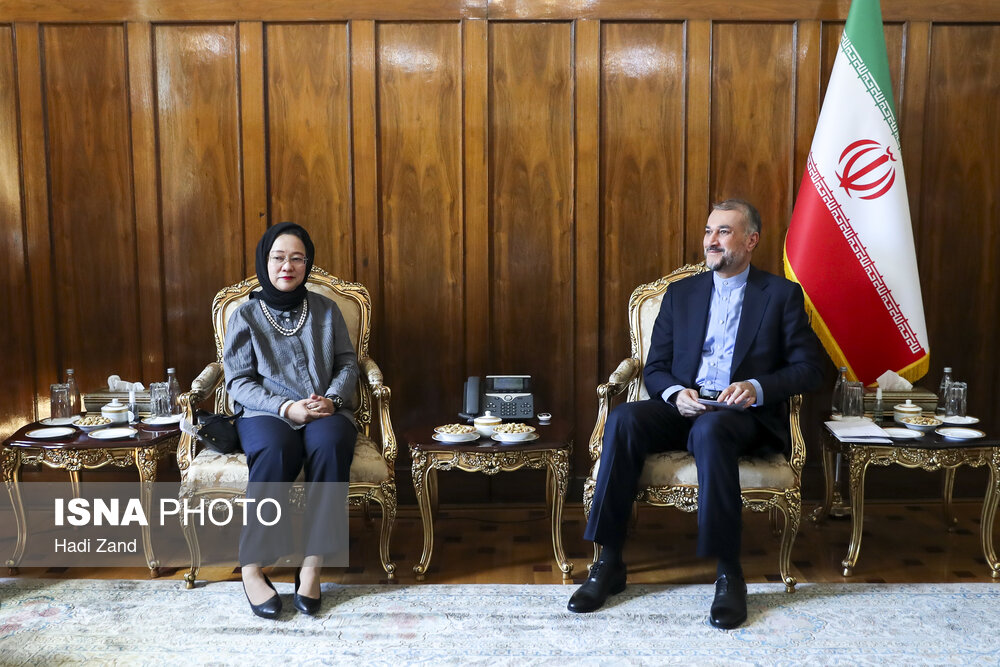Amirabdollahian made the remark in a Sunday meeting with Alis Jabana, deputy secretary general of the United Nations and the executive secretary of the Economic and Social Commission for Asia and the Pacific, ESCAP.
The meeting was held on the sidelines of the International Conference on Combating Sand and Dust Storms, which was held in the Iranian capital city of Tehran on September 9-10.
Mentioning the wars imposed on the region by extraregional powers as a major source of sand and dust storms, Amirabdollahian said those powers “caused problems for the regional people and nature just to achieve their goals and with no care for such important issues as the environment.”
Iran’s top diplomat described climate change as another reason for the increasing frequency of sand and dust storms in the West Asia region.
He added that Iran is ready to boost cooperation with ESCAP to reduce the impact of natural disasters and the frequency of sand and dust storms in the region.
Jabana, for her part, highlighted the importance of coordinated regional efforts to fight such storms, while declaring ESCAP’s readiness to support Iran in this regard.
She added that the Iranian president’s address to the conference on Saturday was indicative of the high importance that the Islamic Republic attaches to issues related to the environment.
The International Conference on Combating Sand and Dust Storms was inaugurated in Tehran on Saturday and wrapped up on Sunday.
Addressing the conference, President Ebrahim Raeisi expressed hope that the event would provide the necessary ground “for common thinking and common planning on the important issue of environmental protection.”
“Protection of the environment must not be influenced by political issues and usual diplomatic compliments, and the decisions made in this field must be considered and followed up as an important issue,” he stated.
Raeisi also mentioned “using the capacities of scientific and research centers,” “creating a special fund” and “preparing cultural and media annexes” for development projects as Iran’s three proposals for dealing effectively with sand and dust storms.
